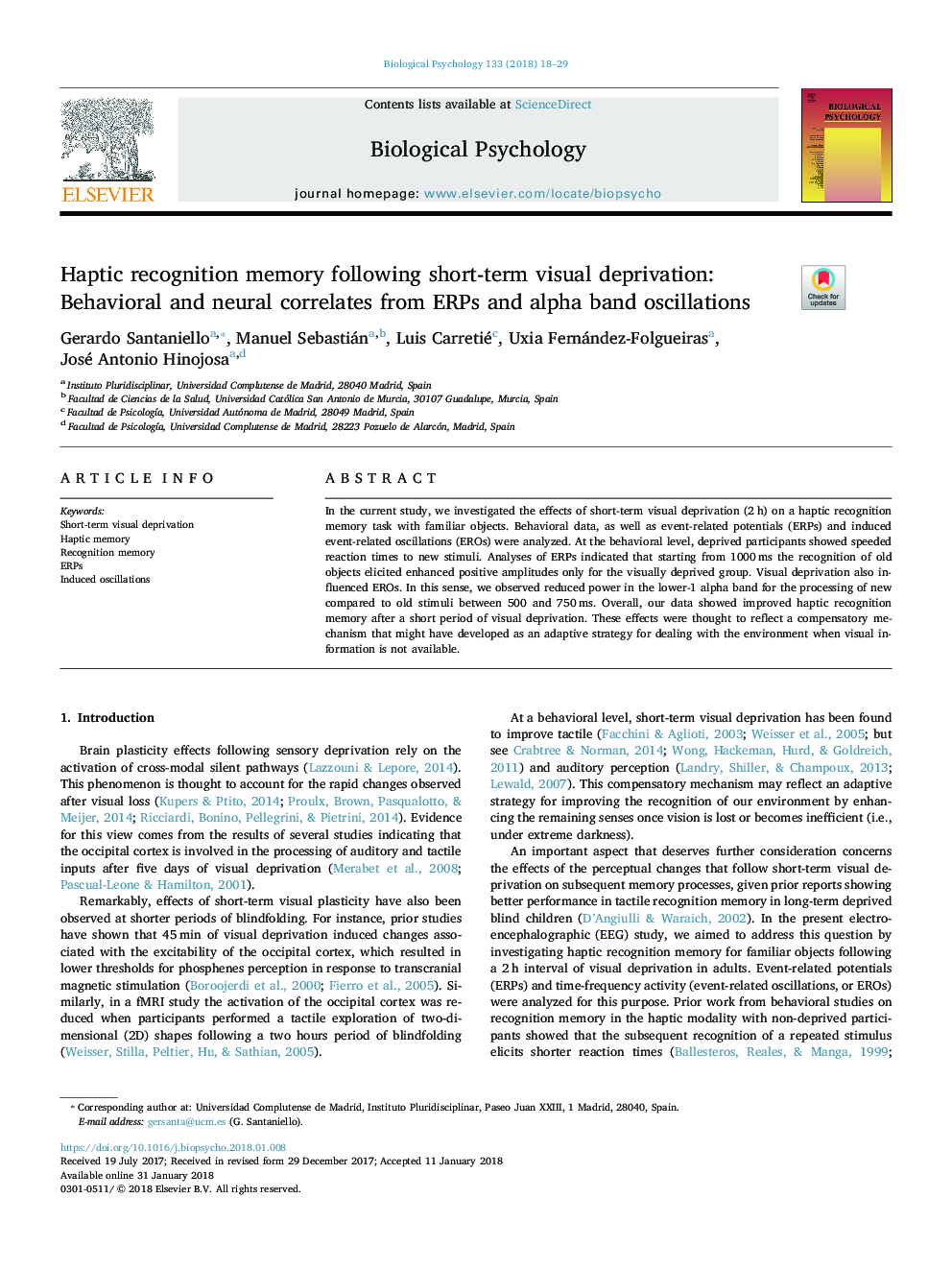| Article ID | Journal | Published Year | Pages | File Type |
|---|---|---|---|---|
| 7278174 | Biological Psychology | 2018 | 12 Pages |
Abstract
In the current study, we investigated the effects of short-term visual deprivation (2â¯h) on a haptic recognition memory task with familiar objects. Behavioral data, as well as event-related potentials (ERPs) and induced event-related oscillations (EROs) were analyzed. At the behavioral level, deprived participants showed speeded reaction times to new stimuli. Analyses of ERPs indicated that starting from 1000â¯ms the recognition of old objects elicited enhanced positive amplitudes only for the visually deprived group. Visual deprivation also influenced EROs. In this sense, we observed reduced power in the lower-1 alpha band for the processing of new compared to old stimuli between 500 and 750â¯ms. Overall, our data showed improved haptic recognition memory after a short period of visual deprivation. These effects were thought to reflect a compensatory mechanism that might have developed as an adaptive strategy for dealing with the environment when visual information is not available.
Related Topics
Life Sciences
Neuroscience
Behavioral Neuroscience
Authors
Gerardo Santaniello, Manuel Sebastián, Luis Carretié, Uxia Fernández-Folgueiras, José Antonio Hinojosa,
